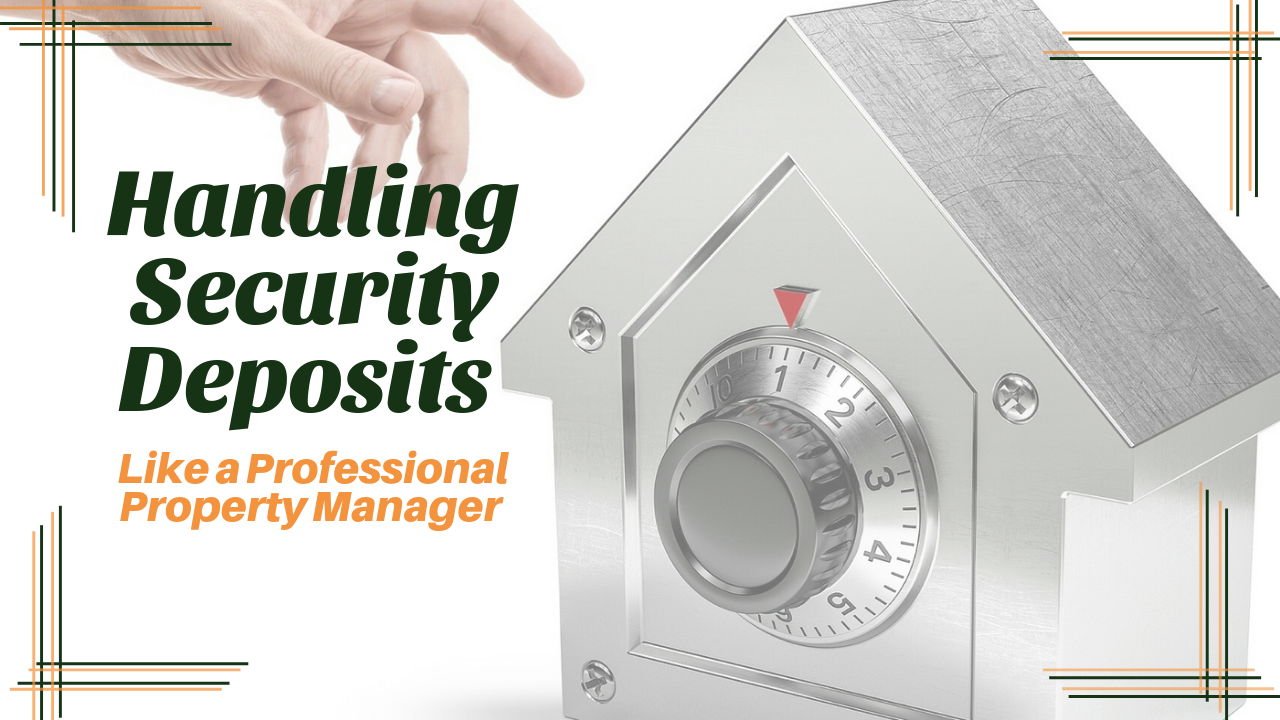
Most disputes between landlords and tenants will occur over the security deposit. As a rental property owner, you’ll collect a security deposit to protect yourself against the potential damage a tenant can leave behind or to cushion the financial blow of a tenant breaking the lease and leaving the property without warning.
Things get sticky when it’s time to return the security deposit and you have to decide whether you should keep any of those funds to pay for damage caused by the tenant.
To protect yourself against security deposit disputes, there are a few things you can do and a few things you must know.
Security Deposit Amounts
There is no limit to the amount of money you can collect as a security deposit. It’s pretty standard to collect the equivalent of one month’s rent. You want to collect enough to protect yourself and your investment, but you don’t want to make the move-in funds prohibitive for good tenants.
While you don’t have to worry about limiting the amount you collect, you do need to understand that non-refundable deposits are not permitted in Colorado. The security deposit is the tenant’s money, and it’s fully refundable at the end of the lease term.
Colorado Security Deposit Deductions
Landlords are permitted to make deductions from the security deposit for property damage that’s due to abuse, neglect, or misuse. You cannot deduct for normal wear and tear items, however. Those small nail holes in the wall from where pictures were hung or the scuff marks left behind by furniture are going to be your responsibility. However, glaring damage that was not in the property before the tenant moved in can be deducted. You can also deduct for the cost of cleaning, unpaid rent, or unpaid utility bills. If a tenant abandons the property before the end of the lease, you can use the security deposit funds to cover any lost rent or repair expenses.
Make sure you do a thorough inspection of the property before a tenant moves in and then again after a tenant moves out. The purpose is to document the condition of the home. This will help you when you need to make a security deposit deduction. If the tenants try to tell you that something was not their fault, you can point out that the damage occurred during the term of the tenancy.
Security Deposit Timelines
You’re required to return the tenant’s security deposit within one month of the tenant vacating the home. If you lease indicates otherwise, you may follow the terms of the lease, but you aren’t allowed to wait longer than 60 days. If there’s a hazardous situation that makes the property inhabitable and the tenant needs to move out right away, the landlord is required to return the deposit within 72 hours.
When you do withhold all or part of the security deposit, be sure to provide an itemized list of what the money will pay for. You must be specific about each deduction. It’s a good idea to include any invoices or receipts for the work that was done.
 If a landlord is found to violate Colorado’s security deposit law, he or she can be required to pay three times the amount of the full deposit to the tenant. You don’t want to make a mistake with your security deposits.
If a landlord is found to violate Colorado’s security deposit law, he or she can be required to pay three times the amount of the full deposit to the tenant. You don’t want to make a mistake with your security deposits.
Contact us at Muldoon Associates if you need any help with security deposits or anything pertaining to Colorado Springs property management.
